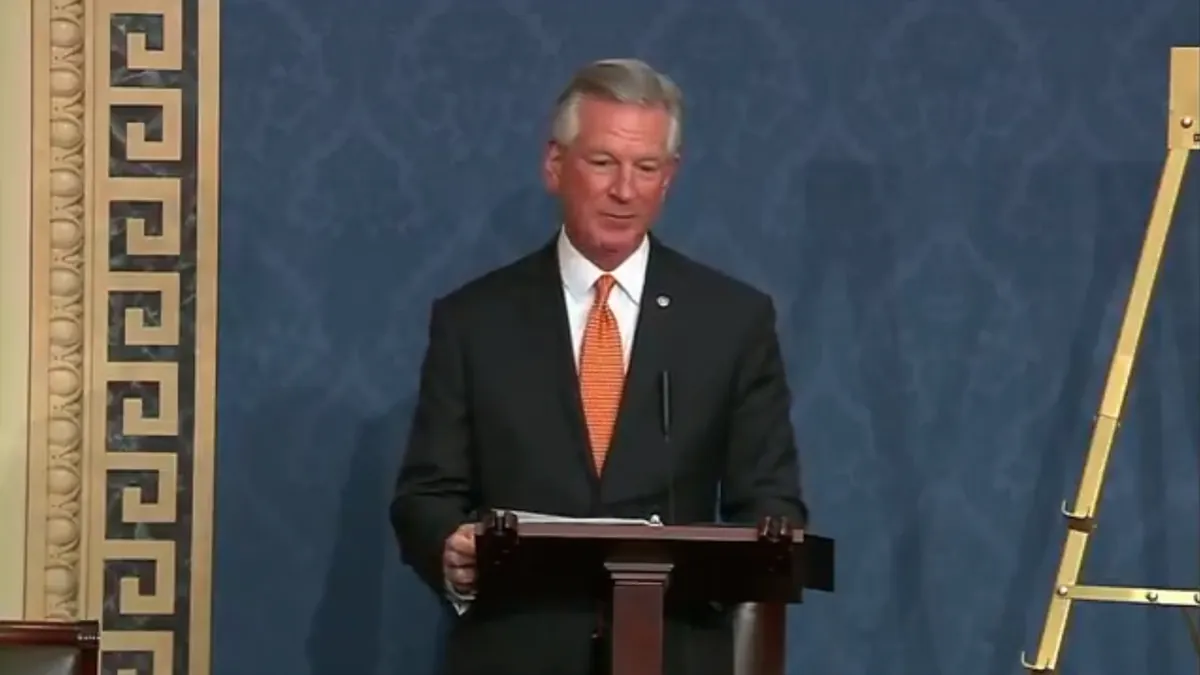Tuberville Blocks Army General's Promotion Amid Pentagon Controversy
Senator Tommy Tuberville halts Lt. Gen. Ronald P. Clark's promotion to Pacific commander, citing concerns over Defense Secretary Austin's hospitalization incident. The move reignites debate on military appointments and transparency.

Senator Tommy Tuberville has impeded the promotion of Lt. Gen. Ronald P. Clark to a four-star position overseeing U.S. Army forces in the Pacific. This action is linked to concerns about Clark's conduct during Defense Secretary Lloyd Austin's recent health crisis.
The situation stems from events in late 2023 when Austin underwent prostate cancer surgery on December 22. Complications led to his admission to intensive care on January 2, 2024. The delay in notifying President Biden and the public about Austin's condition until January 5 sparked controversy.
Clark, who served as Austin's senior military assistant during this period, is now facing scrutiny for his role in the communication breakdown. Tuberville's office stated that the senator is awaiting the results of a Defense Department inspector general review before considering the promotion further.
This incident has brought attention to the U.S. Army Pacific (USARPAC), a crucial component of the Indo-Pacific Command that oversees an area covering approximately half the Earth's surface. The commander of USARPAC, typically a four-star general, plays a vital role in the region's strategic operations, particularly in relation to China and Taiwan.

The Pentagon has defended Clark's qualifications, citing his extensive leadership experience in recent military conflicts and previous service in the Pacific. However, the hold on his nomination highlights the ongoing tension between military readiness and political oversight.
This is not the first time Tuberville has been involved in blocking military promotions. In 2023, he held up hundreds of appointments in a dispute over the Pentagon's abortion-related travel policy, a move that eventually drew criticism from his Republican colleagues.
The current situation also underscores the importance of the Senate's role in confirming high-ranking military appointments, a process integral to maintaining the balance of power in the U.S. government structure.
As the controversy unfolds, it brings to light the complex interplay between military command structures, political oversight, and public transparency. The outcome of this situation could have implications for future military appointments and the handling of sensitive information within the Department of Defense.
"I want to be crystal clear: We did not handle this right. I did not handle this right. I should have told the president about my cancer diagnosis. I should have also told my team and the American public, and I take full responsibility."
The ongoing review by the Defense Department inspector general, Robert Storch, is expected to provide a comprehensive examination of the roles and procedures surrounding Austin's hospitalization. This independent assessment may play a crucial role in resolving the current impasse and informing future protocols for similar situations.
As the U.S. continues to focus on its strategic interests in the Indo-Pacific region, particularly concerning Taiwan and China relations, the prompt resolution of this leadership appointment becomes increasingly significant for maintaining military readiness and regional stability.


































